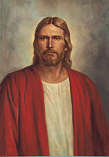
FAIR is a non-profit organization dedicated to providing well-documented answers to criticisms of the doctrine, practice, and history of The Church of Jesus Christ of Latter-day Saints.
mNo edit summary |
mNo edit summary |
||
| Line 404: | Line 404: | ||
=== === | === === | ||
{{FAQ | {{FAQ | ||
|q= | |q=What if a member disagrees with the council's decision, or believes that proper procedure has not been observed? | ||
|a=In most cases, the matters discussed in disciplinary councils remain completely confidential. Ward leaders are privately advised if a member’s privileges have been restricted, but they are not told the details. (This prevents embarrassment, since leaders can avoid calling on a member under restrictions to pray or teach.) | |a=At the conclusion of every disciplinary council, the presiding officer informs the member that if he or she wishes to appeal the decision, he may so indicate in writing within thirty days. Bishops' councils may be appealed to the stake president. Stake councils may be appealed to the Church's highest body, the First Presidency. | ||
|quote= | |||
|link= | |||
|subject= | |||
|summary= | |||
|tag= | |||
|link2= | |||
|subject2= | |||
|summary2= | |||
|tag2= | |||
}} | |||
=== === | |||
{{FAQ | |||
|q=Are Church authorities informed of the outcome of disciplinary councils? | |||
|a=The outcomes of all disciplinary councils must be reported to the Office of the First Presidency. The forms for such reporting describe the transgression, evidence, elements involved in making a decision, and names of all those involved. | |||
|quote= | |||
|link= | |||
|subject= | |||
|summary= | |||
|tag= | |||
|link2= | |||
|subject2= | |||
|summary2= | |||
|tag2= | |||
}} | |||
=== === | |||
{{FAQ | |||
|q=Is anyone local informed of the outcome of a disciplinary council? | |||
|a=In most cases, the matters discussed in disciplinary councils remain completely confidential. Ward leaders are privately advised if a member’s privileges have been restricted, but they are not told the details of why this was necessary. (This prevents embarrassment, since leaders can avoid calling on a member under restrictions to pray or teach.) | |||
A more public announcement is made if the transgressor is found guilty of: | A more public announcement is made if the transgressor is found guilty of: | ||
#Apostasy | #Apostasy | ||
| Answers portal |
| Mormon FAQ |

|
 Frequently Asked Questions about Church Disciplinary Councils
Frequently Asked Questions about Church Disciplinary CouncilsIf you have a question about the whys, hows, or wherefores of Church Discipline in the Church of Jesus Christ of Latter-day Saints, our FAQ has the answer.
Whenever this [stake high] council convenes to act upon any case, the twelve councilors shall consider whether it is a difficult one or not; if it is not, two only of the councilors shall speak upon it....But if it is thought to be difficult, four shall be appointed; and if more difficult, six; but in no case shall more than six be appointed to speak. The accused, in all cases, has a right to one–half of the council, to prevent insult or injustice. And the councilors appointed to speak before the council are to present the case, after the evidence is examined, in its true light before the council; and every man is to speak according to equity and justice. Those councilors who draw even numbers, that is, 2, 4, 6, 8, 10, and 12, are the individuals who are to stand up in behalf of the accused, and prevent insult and injustice.
|

FAIR is a non-profit organization dedicated to providing well-documented answers to criticisms of the doctrine, practice, and history of The Church of Jesus Christ of Latter-day Saints.
We are a volunteer organization. We invite you to give back.
Donate Now